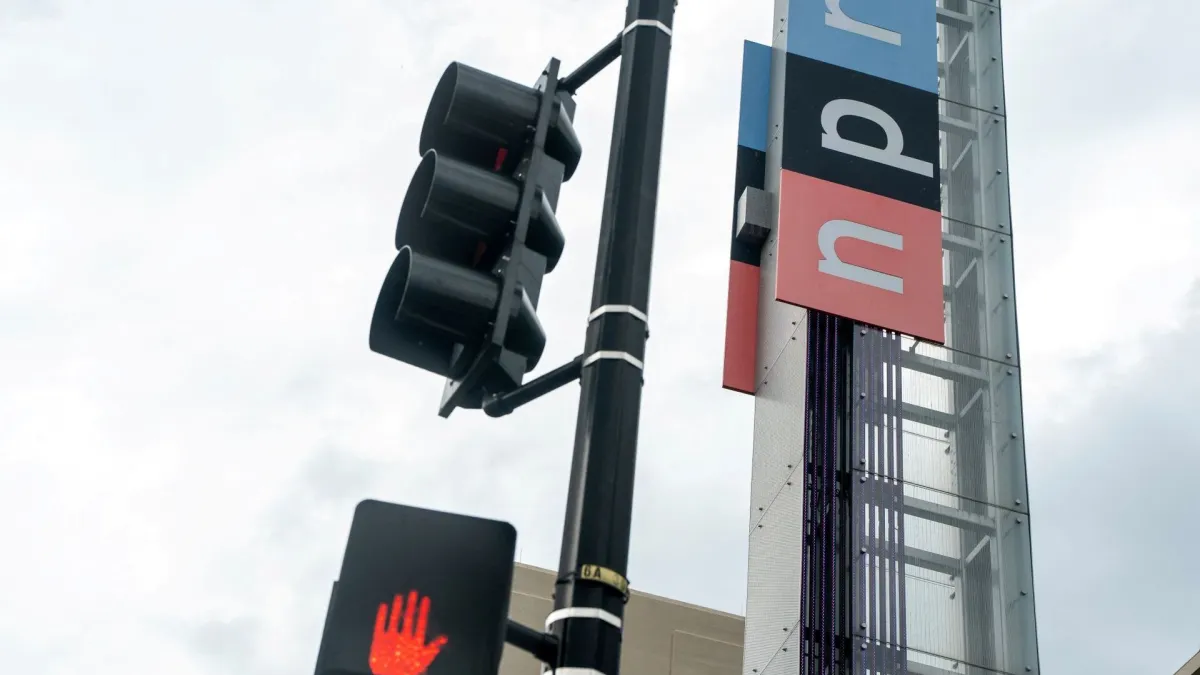
The House voted just after midnight on Friday to approve a $9 billion package of DOGE spending cuts.
The 216-213 vote claws back funding that Congress had previously provided for foreign aid and public broadcasting. It delivers a second major legislative win this month for President Donald Trump and marks the first time in more than three decades that lawmakers have agreed to a White House request to cancel approved appropriations.
The Senate had passed the spending cuts — including $7.9 billion in foreign aid and $1.1 billion for the Corporation for Public Broadcasting, which supports NPR and PBS — shortly after 2 a.m. the previous night, so the House vote sent the bill to the White House, where Trump was set to sign it on Friday.
Trump takes a victory lap: The president hailed the vote, especially the cuts to NPR and PBS, in a post on his social media site. Republicans have criticized both public media outlets for what they say is a liberal bias and “woke” ideology. “HOUSE APPROVES NINE BILLION DOLLAR CUTS PACKAGE, INCLUDING ATROCIOUS NPR AND PUBLIC BROADCASTING, WHERE BILLIONS OF DOLLARS A YEAR WERE WASTED,” Trump wrote in a post time-stamped 12:40 a.m. “REPUBLICANS HAVE TRIED DOING THIS FOR 40 YEARS, AND FAILED….BUT NO MORE. THIS IS BIG!!!”
Two Republicans, Reps. Brian Fitzpatrick of Pennsylvania and Mike Turner of Ohio, joined with Democrats in voting against the bill. The vote was delayed as Republicans considered how to deal with an unrelated matter: pressure to respond to demand for information in the case of convicted sex offender Jeffrey Epstein. Republicans on the House Rules Committee ultimately adopted a nonbinding resolution ordering the release of the Epstein files. That resolution might not ever get a floor vote.
Public outcry over cuts to public media: The rescission package cuts fiscal 2026 and 2027 funding of $535 million a year for the Corporation for Public Broadcasting.
The heads of both NPR and PBS emphasized polling that showed that Americans support and value public media and oppose eliminating all federal funding for it. NPR CEO Katherine Maher called the vote “an unwarranted dismantling of beloved local civic institutions, and an act of Congress that disregards the public will.” She warned that the cuts would hurt vital local news coverage and harm parents and children, seniors and students, tribal and rural communities. “Despite promises from some Members of Congress to fix anything the bill breaks, this will be an irreversible loss,” Maher said in a statement. “If a station doesn't survive this sudden turn by Congress, a vital stitch in our American fabric will be gone for good.”
PBS CEO Paula Kerger similarly warned in a statement Thursday that the cuts “will be especially devastating to smaller stations and those serving large rural areas.”
More rescissions coming: The White House and congressional Republicans have both said that more rescissions packages will follow.
“President Trump and House Republicans promised fiscal responsibility and government efficiency. Today, we’re once again delivering on that promise,” House Speaker Mike Johnson wrote in a post on X, adding, “This isn’t the end, it’s the beginning. We look forward to passing additional rescissions bills throughout the 119th Congress.”
White House budget director Russell Vought told reporters that this package of cuts was intentionally small and was meant to restore the congressional “muscle memory” for the process of passing presidential rescissions under the 1974 Impoundment Control Act, which was last successfully accomplished in 1992, during the administration of President George H.W. Bush.
More than a few senators lamented the White House’s approach to this rescissions package — and the broader state of the annual budgeting and appropriations process. Several complained in particular about the lack of detail about what programs would be cut in this rescissions package — and expressed concerns that the Trump administration was undercutting the congressional power of the purse.
Opponents of the bill warned that it would undermine bipartisanship in the annual appropriations process by allowing for spending deals that typically require 60 votes to pass the Senate to be undone by one party controlling the White House and a bare majority in the Senate.
GOP senators urged the White House to make sure that future rescissions requests include more details about what would be cut. “Let’s not make a habit of this. Let’s not consider this a precedent. But if you come back to us again, mister director of the OMB, if you come back to us again from the executive branch, give us the specific amounts and the specific programs that will be cut,” Republican Sen. Roger Wicker of Mississippi said on the Senate floor this week before voting to approve the current request.
Vought largely dismissed those criticisms. Vought on Thursday called for a more partisan appropriations process — and for federal spending decisions to be controlled more by the president. He also argued that the administration had provided a level of detail in line with previous rescissions packages. “People always want more detail,” Vought reportedly said Thursday at an event hosted by the Christian Science Monitor. “We provided all the detail that was needed.”